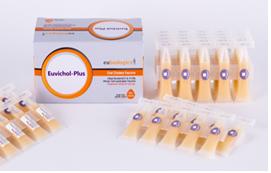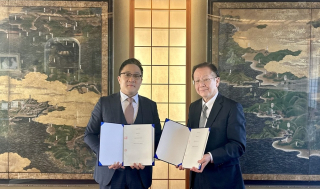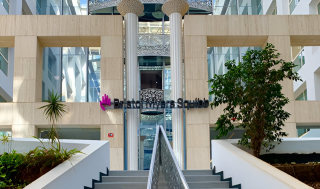기업
Eubiologics set to export new affordable oral cholera vaccine
바이오스펙테이터 Euna Lee 기자
Korea’s bio-venture company Eubiologics will go global with inactivated oral cholera vaccine in a plastic tube.

▲유바이오로직스의 콜레라백신 '유비콜플러스'
Eubiologics announced on January 5 that it would ship 2.45 million doses of the vaccine to Zambia and Somalia in Africa. The cholera vaccine called ‘Euvichol-Plus’, a bivalent vaccine that offers protection from different cholera strains without a buffer, is scheduled to be supplied in lightweight plastic tubes, which are much easier to transport than the glass vials that are currently being used.
For its cholera vaccine, the Korean vaccine producer was prequalified by the World Health Organization last year, meaning that Euvichol-Plus has met the acceptable standards of quality, safety, and efficacy to allow purchase by countries and international agencies.
The United Nations Children’s Fund (UNICEF) last December made requests to Eubiologics for supplies of 5 million doses of the vaccine, and the first shipment met half of the UNICEF order, although its delivery schedule has been somewhat delayed due to unavailable flights. The export records will be reflected in Eubiologics’ first-quarter performance this year.
Through mass production, Euvichol-Plus will be supplied for less than a dollar a dose (40 cents cheaper than the existing glass vial), based on the agreement with the US Bill & Melinda Gates Foundation.
However, company officials said that the vaccine’s profitability is high, in that Eubiologics is independently engaged in all manufacturing processes ranging from the drug substance to the finished product, without any contract filling process of vials. In particular, the plastic tube is smaller in size, and is half the weight of the glass vial, so it is advantageous in packaging, storage, and transport to the vaccination sites.
“Cholera is a potentially fatal diarrheal disease and epidemic in Central South African countries, with outbreaks often occurring during civil wars or natural disasters,” said Choi Geun-seok, Vice President of Eubiologics.
“We expect that oral Euvichol-Plus, which is convenient for transport and storage, will expand affordable access in countries where the disease is endemic.

















